We offer to read an annotation, description, summary or preface (depends on what the author of the book "Search Analytics for Your Site: Conversations with Your Customers" wrote himself). If you haven't found the necessary information about the book — write in the comments, we will try to find it.
Any organization that has a searchable web site or intranet is sitting on top of hugely valuable and usually under-exploited data: logs that capture what users are searching for, how often each query was searched, and how many results each query retrieved. Search queries are gold: they are real data that show us exactly what users are searching for in their own words. This book shows you how to use search analytics to carry on a conversation with your customers: listen to and understand their needs, and improve your content, navigation and search performance to meet those needs. Testimonials Search is one of those mission-critical aspects of every web site that is sadly all to often forgotten until the damage has already been done. Lou, on the other hand, is one of those guys who understands search analytics and the opportunity associated with digging into the nuance of customer and search behaviors to mine for organizational gold. In Search Analytics for your Site, Lou lays out pretty much everything you need to know to mine for that gold and convert it into positive customer experience on your site. Eric T. Peterson, Founder and Author, Web Analytics Demystified Clients have asked me countless times to pretty up their search results page design, as if this would distract users from realizing that theyre getting lousy results. Thats no longer necessary, thanks to Lous book. Karen McGrane, Managing Partner, Bond Art + Science At last a book that explains exactly how to get the best from search analytics so that users can actually find what they are looking for. Martin White, Managing Director, Intranet Focus Ltd, and author of Making Search Work Analytics are the single most important tool you have to improve your search experience, and Lou Rosenfelds world-class expertise in user-centered design is the place to start. Pete Bell, co-founder, Endeca Louis Rosenfelds Search Analytics for Your Site is a superlative work from the initial story to the final chapter on bridging web analytics and UX practice. Im somewhat experienced with event logging methods, but Louis book opened my mind to new ways to use analytics. Each chapter is packed with useful information, clear examples, and refreshing caveats that could only come from a master of search analytics. The book is written in an engaging style that makes you feel like Louis is with you on every page. I plan to apply some of the knowledge and techniques immediately. Great book! Chauncey Wilson, Senior Manager, User Research If we all agree that user feedback will improve any sites user experience, why arent we spending more time with the actual words our audience uses when asking us for stuff? I cant imagine a more experienced guide than Lou Rosenfeld to help us put this amazing data to work. Jeffrey Veen, Founder & CEO, Typekit Lou is the perfect author to tackle what is essentially unexplored territory in the UX community. With Search Analytics for your Site, he has uncovered a huge goldmine for UX professionals of all stripes: now we have the tools to finally, finally fix our website and intranet search experiences. This is one of those rare books that makes me pound the table with my fist and yell, Yes! Exactly! Awesome! while Im reading it. Kristina Halvorson, CEO, Brain Traffic, and author, Content Strategy for the Web


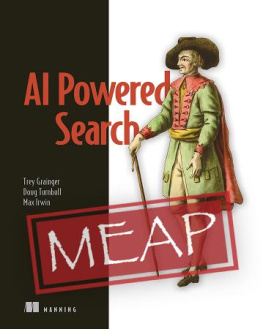
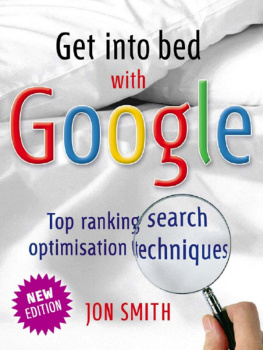
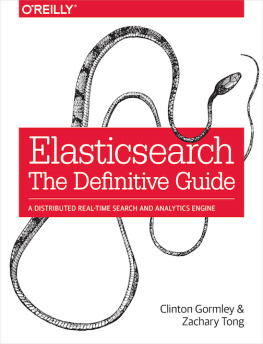
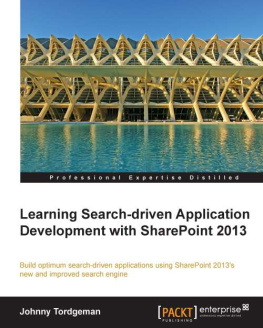
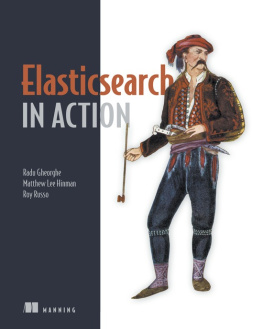
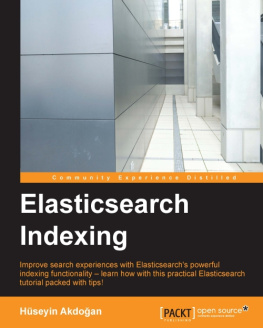
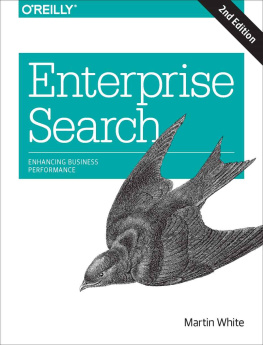

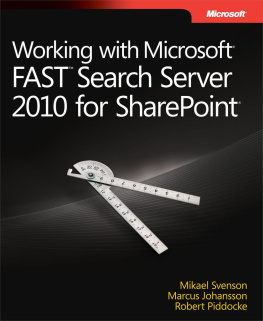

 http://rosenfeldmedia.com/books/searchanalytics/ ) contains some templates, discussion, and additional content related to site search analytics. Youll also find a calendar of my upcoming workshops and talks on site search analytics. Ive also made the books diagrams and other illustrations available under a Creative Commons license (when possible) for you to download and include in your own presentations. You can find these on Flickr at
http://rosenfeldmedia.com/books/searchanalytics/ ) contains some templates, discussion, and additional content related to site search analytics. Youll also find a calendar of my upcoming workshops and talks on site search analytics. Ive also made the books diagrams and other illustrations available under a Creative Commons license (when possible) for you to download and include in your own presentations. You can find these on Flickr at